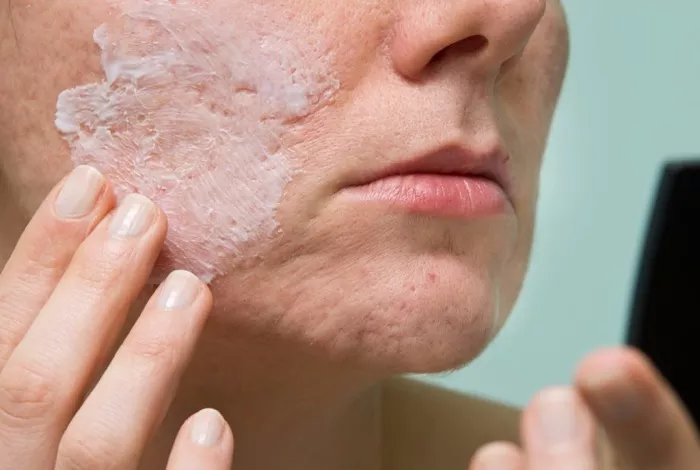Food intolerances, often confused with food allergies, are a common yet complex issue affecting millions of people worldwide. Unlike food allergies, which involve the immune system, food intolerances are generally linked to digestive problems and do not provoke a systemic immune response. This article explores the genetic basis of food intolerances, the distinction between food intolerances and food allergies, and the implications for diagnosis and management.
Understanding Food Intolerances
Definition and Symptoms
Food intolerance occurs when the digestive system cannot properly break down certain foods, leading to gastrointestinal symptoms such as bloating, gas, diarrhea, and abdominal pain. Other symptoms may include headaches, fatigue, and skin rashes. These reactions are typically dose-dependent, meaning that symptoms worsen with larger quantities of the problematic food.
Common Types of Food Intolerances
The most common types of food intolerances include:
Lactose Intolerance: Inability to digest lactose, the sugar found in milk and dairy products.
Gluten Sensitivity: Adverse reactions to gluten, a protein found in wheat, barley, and rye.
Fructose Malabsorption: Difficulty absorbing fructose, a sugar found in fruits, honey, and some vegetables.
Histamine Intolerance: Inability to break down histamine, a compound found in certain foods and produced during allergic reactions.
Sulfite Sensitivity: Reactions to sulfites, which are used as preservatives in foods and drinks.
Genetic Factors in Food Intolerances
Lactose Intolerance: A Well-Studied Case
Lactose intolerance is one of the most studied food intolerances with a clear genetic basis. The condition is caused by a deficiency in lactase, the enzyme responsible for breaking down lactose. This deficiency is linked to variations in the LCT gene, which encodes lactase.
Genetic Variation and Lactase Persistence
In most mammals, lactase production declines after weaning, leading to lactose intolerance. However, some human populations have developed lactase persistence, the continued production of lactase into adulthood, due to genetic mutations. These mutations are most prevalent in populations with a long history of dairy farming, such as those of Northern European descent.
Inheritance Patterns
Lactase persistence follows an autosomal dominant pattern of inheritance. Individuals who inherit one or two copies of the lactase persistence allele can digest lactose, while those with two copies of the non-persistence allele are typically lactose intolerant.
Gluten Sensitivity and Celiac Disease
Gluten sensitivity encompasses non-celiac gluten sensitivity (NCGS) and celiac disease, a severe autoimmune disorder triggered by gluten. While NCGS has unclear genetic underpinnings, celiac disease is strongly associated with specific genetic markers.
Genetic Markers in Celiac Disease
Celiac disease is linked to the presence of certain human leukocyte antigen (HLA) genes, particularly HLA-DQ2 and HLA-DQ8. These genes are involved in immune system function and increase the risk of developing celiac disease when exposed to gluten. However, not everyone with these genes develops celiac disease, indicating that other genetic, environmental, and immunological factors also play a role.
Fructose Malabsorption
Fructose malabsorption involves difficulties in absorbing fructose from the intestines. Research suggests a genetic component to this condition, particularly in the GLUT5 transporter, which is encoded by the SLC2A5 gene. Variations in this gene may influence the efficiency of fructose absorption, although more research is needed to fully understand this relationship.
Histamine Intolerance
Histamine intolerance occurs when there is an imbalance between histamine intake and the body’s ability to break it down. The enzyme diamine oxidase (DAO) plays a crucial role in degrading histamine. Genetic variations affecting the activity of DAO, encoded by the AOC1 gene, can contribute to histamine intolerance.
Sulfite Sensitivity
Sulfite sensitivity is less understood in terms of genetics. However, some studies suggest a possible genetic predisposition related to the body’s ability to process sulfites. Enzymes such as sulfite oxidase are involved in metabolizing sulfites, and genetic variations affecting these enzymes may influence sensitivity levels.
Diagnosing Food Intolerances
Clinical Evaluation
Diagnosing food intolerances typically involves a thorough clinical evaluation, including a detailed medical history and symptom assessment. Physicians may inquire about the timing, frequency, and severity of symptoms in relation to food intake.
Elimination Diets
Elimination diets are a common diagnostic tool. This approach involves removing suspected foods from the diet for a period and then gradually reintroducing them while monitoring for symptoms. This method can help identify specific food triggers.
Breath Tests
For certain intolerances, such as lactose and fructose intolerance, breath tests can be used. These tests measure the levels of hydrogen or methane in the breath after consuming a specific sugar. Elevated levels indicate improper digestion and absorption of the sugar.
Genetic Testing
Genetic testing can provide insights into the likelihood of certain food intolerances. For example, testing for HLA-DQ2 and HLA-DQ8 can help diagnose celiac disease, while testing for LCT gene variants can confirm lactose intolerance. However, genetic testing is not routinely used for all types of food intolerances due to the complexity of their genetic underpinnings.
Managing Food Intolerances
Dietary Modifications
The primary approach to managing food intolerances is dietary modification. This involves identifying and avoiding trigger foods. For example, individuals with lactose intolerance can choose lactose-free dairy products or use lactase supplements. Those with gluten sensitivity must adhere to a strict gluten-free diet.
Enzyme Supplements
Enzyme supplements can help manage some food intolerances. Lactase supplements, for example, can aid in the digestion of lactose for those with lactose intolerance. Similarly, DAO supplements may help individuals with histamine intolerance.
Nutritional Support
Ensuring adequate nutrition is essential when managing food intolerances. Avoiding certain foods can lead to nutritional deficiencies if not properly managed. Consulting with a dietitian can help individuals develop a balanced diet that meets their nutritional needs while avoiding trigger foods.
Monitoring and Adjusting
Managing food intolerances often requires ongoing monitoring and adjustment. Symptoms and tolerance levels can change over time, necessitating periodic reevaluation of the diet and management strategies.
Conclusion
Food intolerances are complex conditions with multifaceted causes, including genetic, epigenetic, and environmental factors. While certain food intolerances, like lactose intolerance and celiac disease, have well-established genetic bases, others are less clearly understood. Ongoing research into the genetic and microbiological underpinnings of food intolerances promises to improve diagnosis and management, offering hope for more effective and personalized approaches in the future. Understanding the genetic components of food intolerances can help individuals and healthcare providers develop tailored strategies to manage symptoms and maintain optimal health.
[inline_related_posts title=”You Might Be Interested In” title_align=”left” style=”list” number=”6″ align=”none” ids=”9408,9404,9400″ by=”categories” orderby=”rand” order=”DESC” hide_thumb=”no” thumb_right=”no” views=”no” date=”yes” grid_columns=”2″ post_type=”” tax=””]
































